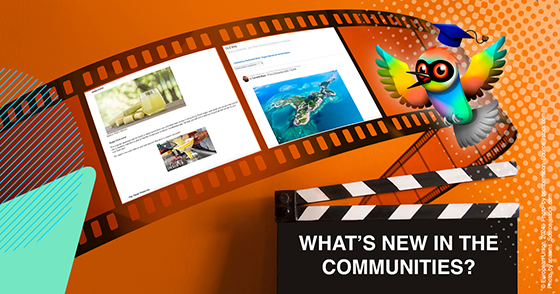OLS forums and discussion topics encourage students to hone their language skills with their peers, under the guidance of a community manager who is a native speaker. Here’s a sample of the latest posts from four community managers. If mobility participants cannot access the links, they first need to join the community for that language.
English: Street food
What better way to discover the heart of a country, its people and language than through its food? The first part of English community manager Iya’s street food series, Hong Kong, Trinidad & Tobago, and Wales, looks at laverbread, bake and shark, doubles, and the three treasures. Learners can take part in the discussion and talk about exotic foods they’ve tasted on their travels.
German: ‘island-giftedness’ and other strange expressions
If a German speaker says you’re a ‘Handschuhschneeballwerfer’ (glove + snowball + thrower), do you know what that says about your character? The German language allows for fascinating, and hilarious, word combinations. Community manager Carmelito introduces us to six expressions and explains what they mean in his blog article. Encourage students to tell the community about ones they know – or have invented themselves.
French: introduce yourself to the community
Years from now, students will be finishing their PhDs or great first novels in French and remembering how it all began with that shaky two-line introduction they wrote in an OLS forum. Mobility participants can join community manager Lilas in the discussion thread Introduce yourself to the community. Those who want to build their vocabulary should see the previous article Top 100 most used words in French.
Iceland: The pros and cons of travel adventures
Fortunately, the eight ‘positive pros’ outnumber the five ‘realistic cons’ of living and studying in the land of fire and ice in this blog article by community manager Íris. Find the article here.
